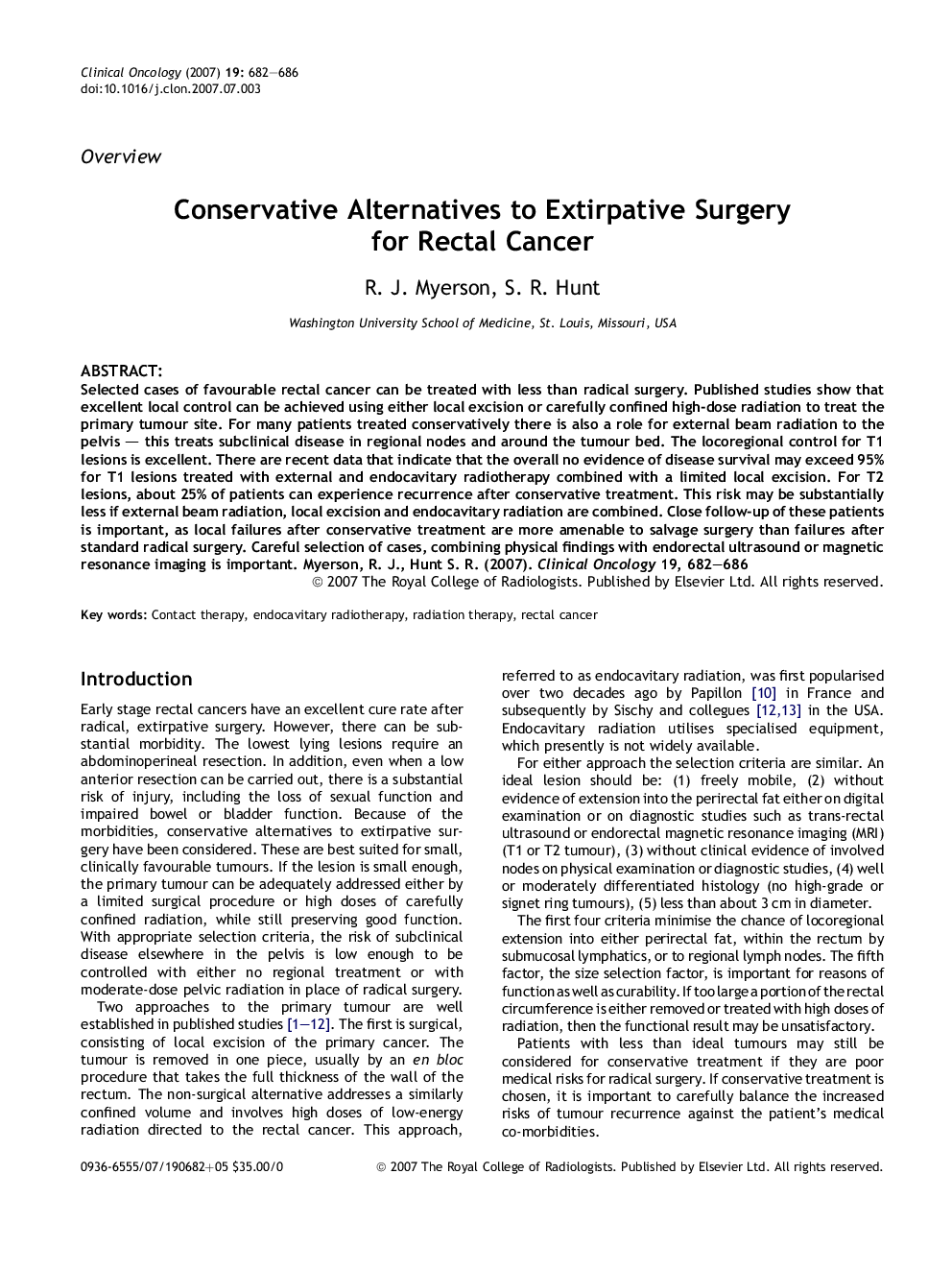| Article ID | Journal | Published Year | Pages | File Type |
|---|---|---|---|---|
| 5699894 | Clinical Oncology | 2007 | 5 Pages |
Abstract
Selected cases of favourable rectal cancer can be treated with less than radical surgery. Published studies show that excellent local control can be achieved using either local excision or carefully confined high-dose radiation to treat the primary tumour site. For many patients treated conservatively there is also a role for external beam radiation to the pelvis - this treats subclinical disease in regional nodes and around the tumour bed. The locoregional control for T1 lesions is excellent. There are recent data that indicate that the overall no evidence of disease survival may exceed 95% for T1 lesions treated with external and endocavitary radiotherapy combined with a limited local excision. For T2 lesions, about 25% of patients can experience recurrence after conservative treatment. This risk may be substantially less if external beam radiation, local excision and endocavitary radiation are combined. Close follow-up of these patients is important, as local failures after conservative treatment are more amenable to salvage surgery than failures after standard radical surgery. Careful selection of cases, combining physical findings with endorectal ultrasound or magnetic resonance imaging is important.
Keywords
Related Topics
Health Sciences
Medicine and Dentistry
Oncology
Authors
R.J. Myerson, S.R. Hunt,
